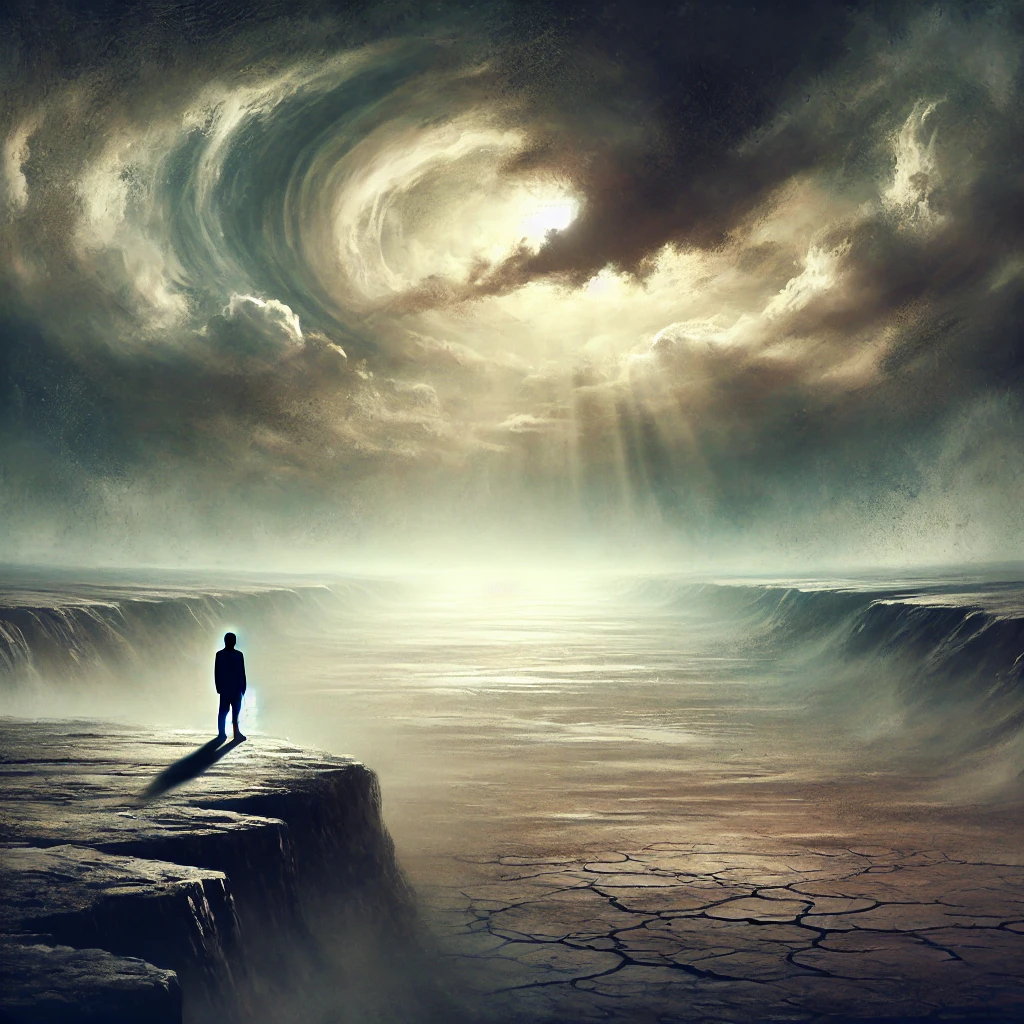
Growing up in a fundamentalist faith tradition, I was often told that I would never find true meaning in life, real fulfillment and satisfaction, outside the safe confines of my own belief system. They told me that people of other faiths – or worse, those without a religious faith – lived without any moral compass or spiritual experience: an empty, pointless, hollow existence.
Once I found the courage to renounce my narrow, traditional understanding of my own essence and my place in the world, I learned that my fears were unfounded. My perceptions became gradually clearer, my experience richer. This was neither an easy nor a swift process. At first, I was beset with fear of losing the conceptual framework that had given structure to my worldview. Over a period of twenty years or so, I became familiar with other traditions and came to realize that all religious thought and practice has the same goal and purpose. I made friends from diverse backgrounds and discovered that our core values were the same. Eventually I came to understand that religion is, simply put, ancient-world psychology, a system of knowledge and practice that predates the scientific method and the vocabulary that we are so familiar with in the present time.
At this point, I began, strangely enough, to feel guilt again: no longer based on fear of violating some arbitrary set of divine edicts, but rather due to the feelings I still held for religious tradition in general. I asked myself: if religion is no more than a set of psychological metaphors expressed through a cultural filters, would I not be better off discarding it completely? Is it a sign of mental weakness that I continue to be moved emotionally by my customary symbols?
These are important and deeply personal questions, and they strike at the heart of the struggle many experience when deconstructing their religious belief systems. The void left behind can feel vast. For many, religion was not just a set of doctrines but also a source of comfort, identity, and community. When that structure collapses, it’s natural to feel lost or even emotionally adrift. However, what’s often missed is that while specific doctrines may no longer resonate, there is still immense value in the cultural heritage they represent. The challenge is learning how to embrace that cultural legacy without falling back into rigid, dogmatic thinking.
To begin filling that emotional void, it’s helpful to reflect on what religion provided on a deeper level. It likely offered a sense of belonging, connection to something greater, and a narrative structure to help make sense of life’s complexities. These needs don’t disappear with the loss of faith; they are human needs, not religious ones. Recognizing this opens the door to finding new ways to satisfy these longings, often through cultural traditions, community, and personal spirituality, untethered from dogma.
Cultural heritage, while often intertwined with religious practice, can exist independently of religious belief. Many people find that the rituals, stories, and symbols they grew up with still hold significant meaning, even if they no longer accept the theological claims associated with them. For example, participating in holiday celebrations, listening to traditional music, or engaging in community events can evoke feelings of nostalgia, warmth, and connection. These experiences can be grounding, offering continuity and a sense of place in the world without requiring adherence to supernatural beliefs.
At the same time, transcending religious dogma allows for a more expansive, liberating experience of life. When we detach from the rigid, black-and-white thinking that often accompanies orthodox belief systems, we make space for a more nuanced, open-ended exploration of meaning. This doesn’t mean abandoning all forms of spiritual exploration or rejecting the idea of transcendent experiences. On the contrary, many find that by letting go of literalist interpretations, they can engage with spiritual practices—such as meditation, mindfulness, or even prayer—on their own terms, allowing for a more personal and fluid relationship with the unknown.
In this sense, embracing cultural heritage while moving beyond dogma is a balancing act. It involves holding onto the parts of your tradition that resonate on a human level—such as the values of compassion, justice, and community—while letting go of the need for rigid explanations or fear-based adherence to rules. It’s about finding the sacred in the ordinary, realizing that rituals and symbols are not inherently tied to specific beliefs, but are instead expressions of universal human longings for meaning, connection, and transcendence.
As you continue this journey, it’s also important to build new communities of support. Religion often provides a built-in social network, and leaving that can be one of the hardest aspects of deconstruction. Finding like-minded individuals who are on similar paths can be incredibly healing. Whether through online communities, secular organizations, or philosophical groups, connecting with others who are also seeking meaning outside of traditional religion can offer a sense of solidarity and shared purpose.
Ultimately, filling the emotional void left by religion requires an openness to new possibilities—both within yourself and in the world around you. It’s about embracing the complexity of life without needing definitive answers, trusting that meaning is something we create and continually evolve, rather than something that’s handed down from above. By honoring your cultural heritage and embracing your evolving beliefs, you can craft a life rich in purpose, grounded in authenticity, and free from the limitations of dogma.